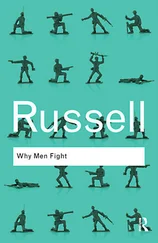Bertrand Russell - In praise of idleness
Здесь есть возможность читать онлайн «Bertrand Russell - In praise of idleness» весь текст электронной книги совершенно бесплатно (целиком полную версию без сокращений). В некоторых случаях можно слушать аудио, скачать через торрент в формате fb2 и присутствует краткое содержание. Жанр: Философия, на английском языке. Описание произведения, (предисловие) а так же отзывы посетителей доступны на портале библиотеки ЛибКат.
- Название:In praise of idleness
- Автор:
- Жанр:
- Год:неизвестен
- ISBN:нет данных
- Рейтинг книги:4 / 5. Голосов: 1
-
Избранное:Добавить в избранное
- Отзывы:
-
Ваша оценка:
- 80
- 1
- 2
- 3
- 4
- 5
In praise of idleness: краткое содержание, описание и аннотация
Предлагаем к чтению аннотацию, описание, краткое содержание или предисловие (зависит от того, что написал сам автор книги «In praise of idleness»). Если вы не нашли необходимую информацию о книге — напишите в комментариях, мы постараемся отыскать её.
In praise of idleness — читать онлайн бесплатно полную книгу (весь текст) целиком
Ниже представлен текст книги, разбитый по страницам. Система сохранения места последней прочитанной страницы, позволяет с удобством читать онлайн бесплатно книгу «In praise of idleness», без необходимости каждый раз заново искать на чём Вы остановились. Поставьте закладку, и сможете в любой момент перейти на страницу, на которой закончили чтение.
Интервал:
Закладка:
In the West, we have various ways of dealing with this problem. We have no attempt at economic justice, so that a large proportion of the total produce goes to a small minority of the population, many of whom do no work at all. Owing to the absence of any central control over production, we produce hosts of things that are not wanted. We keep a large percentage of the working population idle, because we can dispense with their labor by making the others overwork. When all these methods prove inadequate, we have a war; we cause a number of people to manufacture high explosives, and a number of others to explode them, as if we were children who had just discovered fireworks. By a combination of all these devices we manage, though with difficulty, to keep alive the notion that a great deal of severe manual work must be the lot of the average man.
In Russia, owing to more economic justice and central control over production, the problem will have to be differently solved. The rational solution would be, as soon as the necessaries and elementary comforts can be provided for all, to reduce the hours of labor gradually, allowing a popular vote to decide, at each stage, whether more leisure or more goods were to be preferred. But, having taught the supreme virtue of hard work, it is difficult to see how the authorities can aim at a paradise in which there will be much leisure and little work. It seems more likely that they will find continually fresh schemes, by which present leisure is to be sacrificed to future productivity. I read recently of an ingenious plan put forward by Russian engineers, for making the White Sea and the northern coasts of Siberia warm, by putting a dam across the Kara Sea. An admirable project, but liable to postpone proletarian comfort for a generation, while the nobility of toil is being displayed amid the ice fields and snowstorms of the Arctic Ocean. This sort of thing, if it happens, will be the result of regarding the virtue of hard work as an end in itself, rather than as a means to a state of affairs in which it is no longer needed.
The fact is that moving matter about, while a certain amount of it is necessary to our existence, is emphatically not one of the ends of human life. If it were, we should have to consider every navvy superior to Shakespeare. We have been misled in this matter by two causes. One is the necessity of keeping the poor contented, which has led the rich, for thousands of years, to preach the dignity of labor, while taking care themselves to remain undignified in this respect. The other is the new pleasure in mechanism, which makes us delight in the astonishingly clever changes that we can produce on the earth's surface. Neither of these motives makes any great appeal to the actual worker. If you ask him what he thinks the best part of his life, he is not likely to say: "I enjoy manual work because it makes me feel that I am fulfilling man's noblest task, and because I like to think how much man can transform his planet. It is true that my body demands periods of rest, which I have to fill in as best I may, but I am never so happy as when the morning comes and I can return to the toil from which my contentment springs." I have never heard workingmen say this sort of thing. They consider work, as it should be considered, a necessary means to a livelihood, and it is from their leisure hours that they derive whatever happiness they may enjoy.
It will be said that, while a little leisure is pleasant, men would not know how to fill their days if they had only four hours of work out of the twenty-four. In so far as this is true in the modern world, it is a condemnation of our civilization; it would not have been true at any earlier period. There was formerly a capacity for lightheartedness and play which has been to some extent inhibited by the cult of efficiency. The modern man thinks that everything ought to be done for the sake of something else, and never for its own sake. Serious-minded persons, for example, are continually condemning the habit of going to the cinema, and telling us that it leads the young into crime. But all the work that goes to producing a cinema is respectable, because it is work, and because it brings a money profit. The notion that the desirable activities are those that bring a profit has made everything topsy-turvy. The butcher who provides you with meat and the baker who provides you with bread are praiseworthy, because they are making money; but when you enjoy the food they have provided, you are merely frivolous, unless you eat only to get strength for your work. Broadly speaking, it is held that getting money is good and spending money is bad. Seeing that they are two sides of one transaction, this is absurd; one might as well maintain that keys are good, but keyholes are bad. Whatever merit there may be in the production of goods must be entirely derivative from the advantage to be obtained by consuming them. The individual, in our society, works for profit; but the social purpose of his work lies in the consumption of what he produces. It is this divorce between the individual and the social purpose of production that makes it so difficult for men to think clearly in a world in which profit-making is the incentive to industry. We think too much of production, and too little of consumption. One result is that we attach too little importance to enjoyment and simple happiness, and that we do not judge production by the pleasure that it gives to the consumer.
When I suggest that working hours should be reduced to four, I am not meaning to imply that all the remaining time should necessarily be spent in pure frivolity. I mean that four hours' work a day should entitle a man to the necessities and elementary comforts of life, and that the rest of his time should be his to use as he might see fit. It is an essential part of any such social system that education should be carried further than it usually is at present, and should aim, in part, at providing tastes which would enable a man to use leisure intelligently. I am not thinking mainly of the sort of things that would be considered "highbrow." Peasant dances have died out except in remote rural areas, but the impulses which caused them to be cultivated must still exist in human nature. The pleasures of urban populations have become mainly passive: seeing cinemas, watching football matches, listening to the radio, and so on. This results from the fact that their active energies are fully taken up with work; if they had more leisure, they would again enjoy pleasures in which they took an active part.
In the past, there was a small leisure class and a larger working class. The leisure class enjoyed advantages for which there was no basis in social justice; this necessarily made it oppressive, limited its sympathies, and caused it to invent theories by which to justify its privileges. These facts greatly diminished its excellence, but in spite of this drawback it contributed nearly the whole of what we call civilization, It cultivated the arts and discovered the sciences; it wrote the books, invented the philosophies, and refined social relations. Even the liberation of the oppressed has usually been inaugurated from above. Without the leisure class, mankind would never have emerged from barbarism. The method of a hereditary leisure class without duties was, however, extraordinarily wasteful. None of the members of the class had been taught to be industrious, and the class as a whole was not exceptionally intelligent. The class might produce one Darwin, but against him had to be set tens of thousands of country gentlemen who never thought of anything more intelligent than fox-hunting and punishing poachers. At present, the universities are supposed to provide, in a more systematic way, what the leisure class provided accidentally and as a by-product. This is a great improvement, but it has certain drawbacks. University life is so different from life in the world at large that men who live in an academic milieu tend to be unaware of the preoccupations and problems of ordinary men and women; moreover their ways of expressing themselves are usually such as to rob their opinions of the influence that they ought to have upon the general public. Another disadvantage is that in universities studies are organized, and the man who thinks of some original line of research is likely to be discouraged. Academic institutions, therefore, useful as they are, are not adequate guardians of the interests of civilization in a world where everyone outside their walls is too busy for unutilitarian pursuits.
Читать дальшеИнтервал:
Закладка:
Похожие книги на «In praise of idleness»
Представляем Вашему вниманию похожие книги на «In praise of idleness» списком для выбора. Мы отобрали схожую по названию и смыслу литературу в надежде предоставить читателям больше вариантов отыскать новые, интересные, ещё непрочитанные произведения.
Обсуждение, отзывы о книге «In praise of idleness» и просто собственные мнения читателей. Оставьте ваши комментарии, напишите, что Вы думаете о произведении, его смысле или главных героях. Укажите что конкретно понравилось, а что нет, и почему Вы так считаете.












